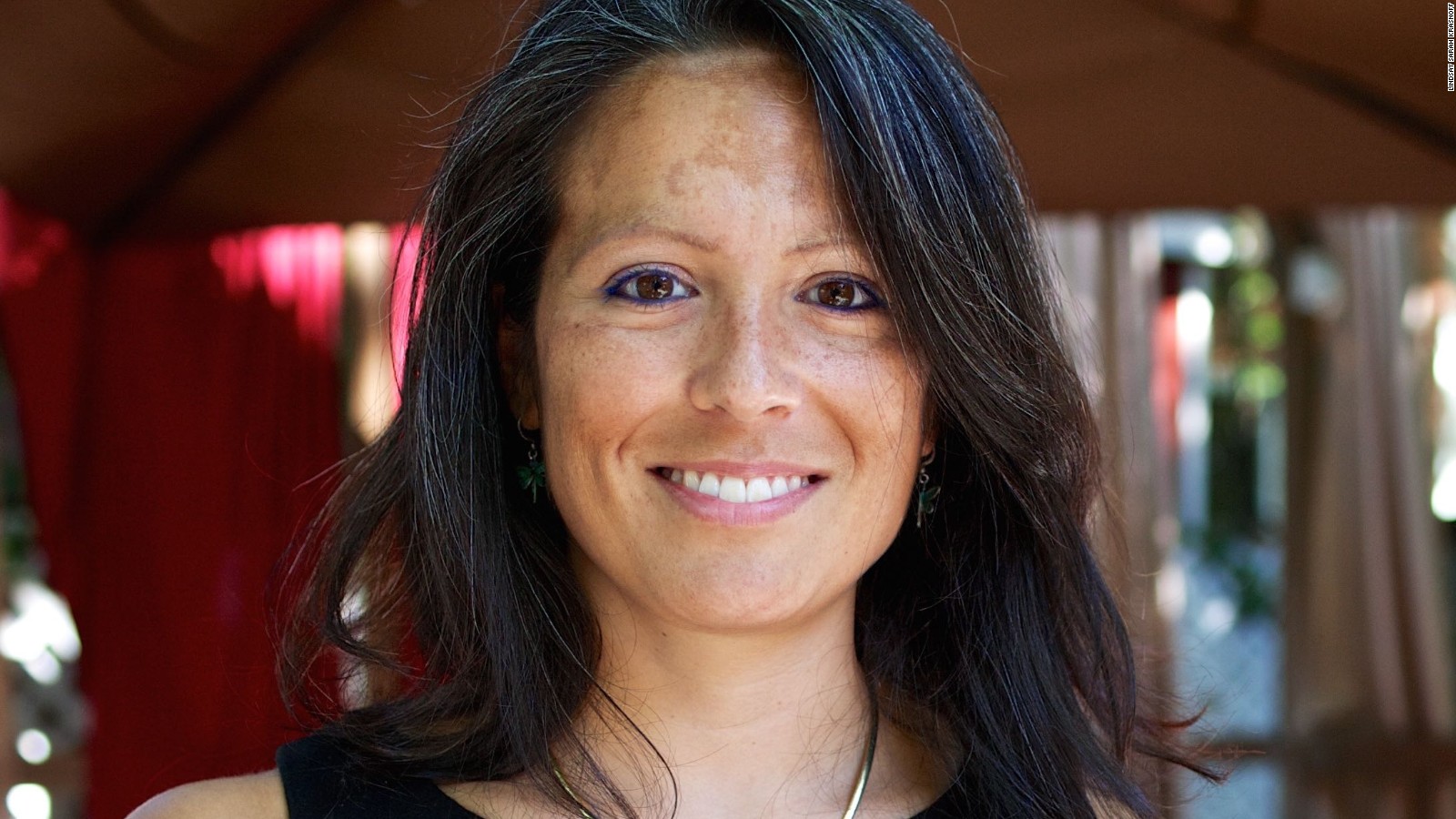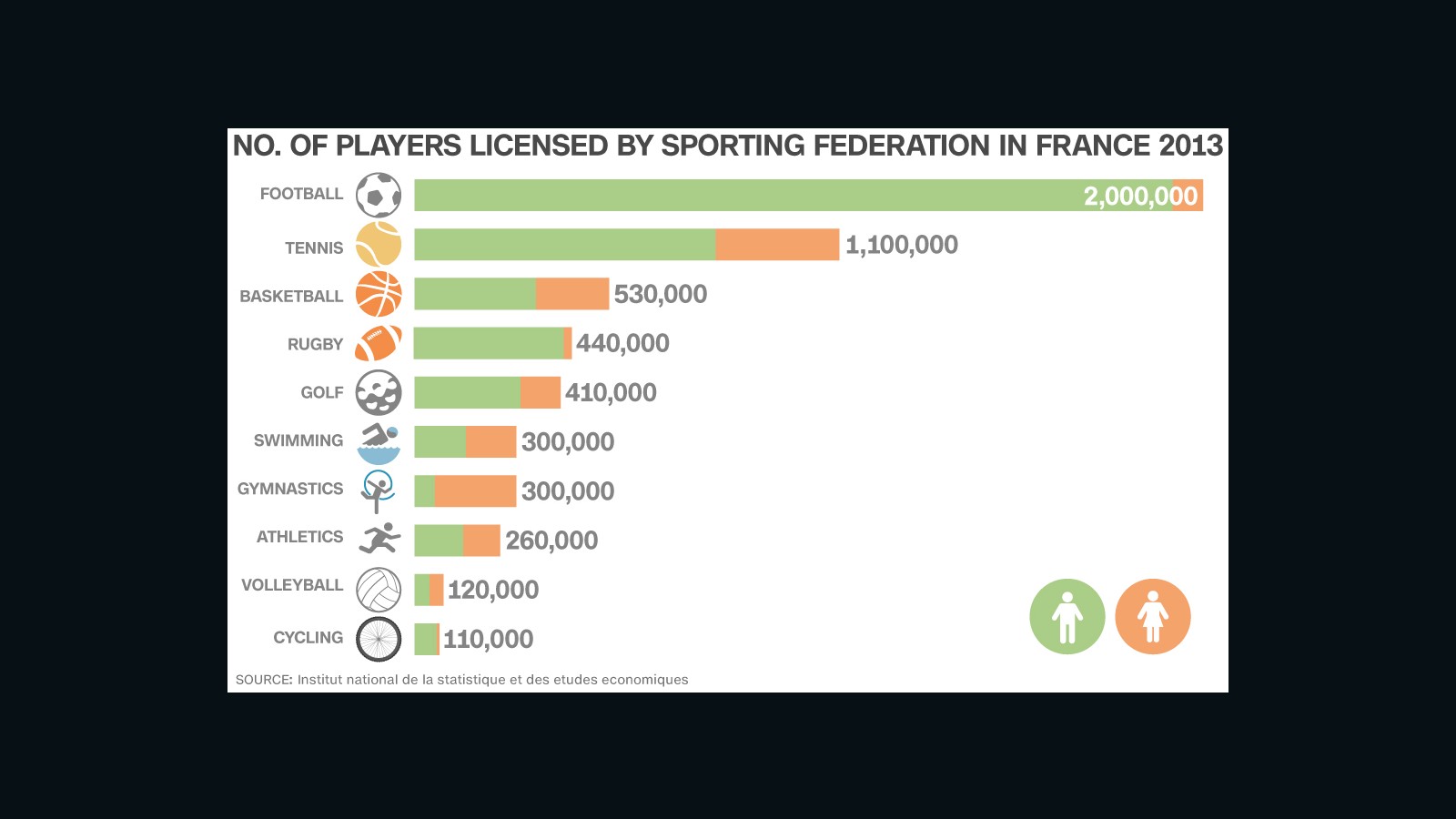Lindsay Sarah Krasnoff is the author of "The Making of Les Bleus: Sport in France, 1958-2010" and a historian at the State Department. The opinions expressed are solely that of the author and do not express those of the U.S. government.
(CNN)In
the aftermath of the Charlie Hebdo massacre, the idea of liberté,
égalité, fraternité in France might have seemed irretrievably fractured.
But try telling that to the thousands of kids and teenagers playing
football in the Paris Île-de-France region week-in and week-out.
Football is one area of French life where the nation's founding principles are very alive and kicking.
With
a population of 12 million, the Ile-de-France - also known as Région
Parisienne (Paris Region) -- is bigger than some European countries and
in Châtenay-Malabry, a town 12 kilometers south of Paris, the football
section of the local sports club, ASVCM, serves as a hive of activity.
It
accepts young players of any level in its football school and fields
several competitive teams. Membership is diverse and reflects the club's
location in a Zone Urbaine Sensitive (ZUS,) an urban area designated as
a policy priority to help alleviate its difficult socio-economic
conditions. "For us," noted Marc Girard, the football section's
president, "it is a kid and a ball."
Some
families encounter difficulties paying membership fees due to parental
unemployment. Yet, the club does all it can to facilitate youth
participation. The aspiring footballers are there, after all, for their
enjoyment of the sport.
They're
also there to learn. Beyond teaching technical skills, the club
instills concepts of punctuality, respect, fair-play, and tolerance.

Lindsay Sarah Krasnoff
"A
football club like ours," said Girard, "we work very much on education
and citizenship." In French, "éducation" can also mean "upbringing."
Throughout
the country, local football clubs serve both senses. "It's true that
we have a social responsibility," Girard said of Parisian-area football
clubs, which constitute the nation's most populous league.
As
a journalist for Canal + and president of sports think tank Sport &
Démocratie (which the author is also a member of), Sylvère-Henry Cissé
is intimately familiar with this educative role.
"Through football," he said, "sport is the third means of socialization after school and the family."
It
can also potentially instill the values of democracy, teamwork, playing
by the rules, and success based on merit. "Sometimes it is the second
means of socialization," added Cissé, "when the family cannot, or does
not have the time or means to participate in socialization."
Following
the January attacks, Cissé noted, "we immediately sought solutions in
sport, to understand where sport had failed." Even if sport didn't fail
in socializing the three young men who committed the atrocities. Society
did. After all, as Cissé emphasized, "sport is just a reflection of
society."
France has changed vastly
over the past 50 years, a shift the sports world mirrors. It has always
served as a destination for immigrants.
Patrick
Mignon, a sociologist at INSEP, the national sports institute (Institut
National du Sport, d'Expertise, et de la Performance), noted that until
the 1960s, "France was a very white society." Most who emigrated
originated from all corners of Europe and assimilated seemingly
seamlessly into the social fabric.
Decolonization,
however, and the aftermath of the Algerian War changed the demographic.
North Africans had long resided in France, but arrived in far greater
numbers after 1962, as did Sub-Saharan Africans and French Antilleans.
Most sought economic opportunity. France offered better paid jobs and
their labor fueled the booming postwar economy.
Then
the 1973 oil crisis hit and brought inflation, unemployment, and
xenophobia. Racism reared its ugly head and the ascendant far right wing
Front National began to question just who, exactly, was "French."
Newcomers
caused consternation, as did the baby-boomers of the 1960s. Youth's
disinterest in athletics fed the era's sports crisis, a lack of medals
and victories at international competitions.
Subsequent
government policies encouraged greater sports participation, and the
1975 Mazeaud Law legislated a place—and funding—for sports within the
national culture. Since then, athletics are increasingly a tool for
social insertion and football leads the way.
For
Cissé, the intersections of assimilation and football are personal. His
great grand-uncle, Blaise Diagne, was the first black African deputy
elected to the French parliament. Diagne's son Raoul was a talented,
highly regarded footballer for famed Racing Club de Paris. Raoul became
the first black player for the national team in 1931, and was welcomed
by the public and press.

Both
Diagnes were successful because of their talent, but it wasn't easy.
They constantly had to be one-and-a-half or two times better than
everyone else to demonstrate their merit. "That is tiring," Cissé said,
"and after a while, it's discouraging."
Eighty
years later, sport remains an arena where anyone can participate.
Across the country, kids from all backgrounds play together. They learn
to excel regardless of skin color, family origins, or religious
background.
Such was the case for Farid El Alagui, who now plays for Scottish club Hibernian.
"I
never felt anything, any difference, from the way that people were
looking at me," he recalled of his youth in Marmande, near Bordeaux.
Born
to parents who emigrated from Morocco in the early 1970s, El Alagui
grew up near the football stadium and played for local club FC Marmande
47. He enjoyed football as a youth in the early 1990s, the camaraderie
it offered, and sense of community.
"I think it helps a lot for you to not be by yourself and excluded by others," he said.
Football
plays the same role today, but the constant lure of the Internet and
social media complicate the situation. Some kids become socially
isolated from their peers the more they become involved in the online
world. For El Alagui, football is an antidote to this seclusion.
It also serves as a social
lubricant. "Sharing the same passion and the same sports definitely
helps a lot to be more involved in society," he said.
And
in France, the most common sport is football. "For every kid," El
Alagui went on, "the first ball we kick is a football." Most athletes,
regardless of their discipline, played football as young children,
including basketball players Nicolas Batum and Kévin Séraphin.
Yet, cultural attitudes towards sport, and football in particular, remain problematic.
France
does not have a national sports culture akin to that of the United
Kingdom or the U.S.. French cultural elites and opinion makers
traditionally disdained football as a working-class sport.
Consequently,
public discourse has historically criticized it, particularly when the
national team fares poorly at international competitions.
Such
snobbism may be related to football's legacy as the first team sport to
professionalize in the early 1930s. The mercenary nature of the
professional game rankled a country that long clung to the Olympian
ideal of amateurism.
And old habits
die hard. According to Christian Gourcuff, the French coach of the
Algerian national team, France still lacks a high respect for football.
Inroads
were made when the country hosted and won the 1998 World Cup and the
sport's popularity, especially within youth culture, was bolstered.
"There
was a lot of pride among the French with this title," Gourcuff
observed. It was an important turning point, though Gourcuff
emphasized, "the French are not connoisseurs of football like the
Spanish or Italians."
The 1998
experience built national solidarity around the black-blanc-beur team.
For former player and ex-Paris Saint-Germain official Jean-Michel
Moutier, "the true value of sport is that everyone is there thanks to
their talent and work."
The white,
black, and Arab players that year embodied this notion. They were hailed
as a positive representation of a multi-ethnic France and it seemed
that sport had much to teach society.
Television
and media have since bolstered the game's popularity and amplified its
pervasiveness. The influx of money into professional football from
sponsors, television contracts, and foreign investors has made being a
footballer attractive to many youths. Traditional careers in medicine,
law, and public service pale in comparison.
The
route to a métier (professional career) in football is through the
professional clubs' youth academies, which claim to focus on athletics,
academics, medical supervision, and citizenship. Today these formation
centers are filled with aspiring players whose parents or grandparents
immigrated to France from Africa.
For the boys, it is a chance to realize a dream. For their families, however, football is a way for their sons to survive.
"It
is much more difficult to be promoted socially though work or school,"
said Mignon, than through sport. Thus, "sport is a means for people of
immigrant background to not only integrate into society, but to have
some rewards."
Aucun commentaire:
Enregistrer un commentaire